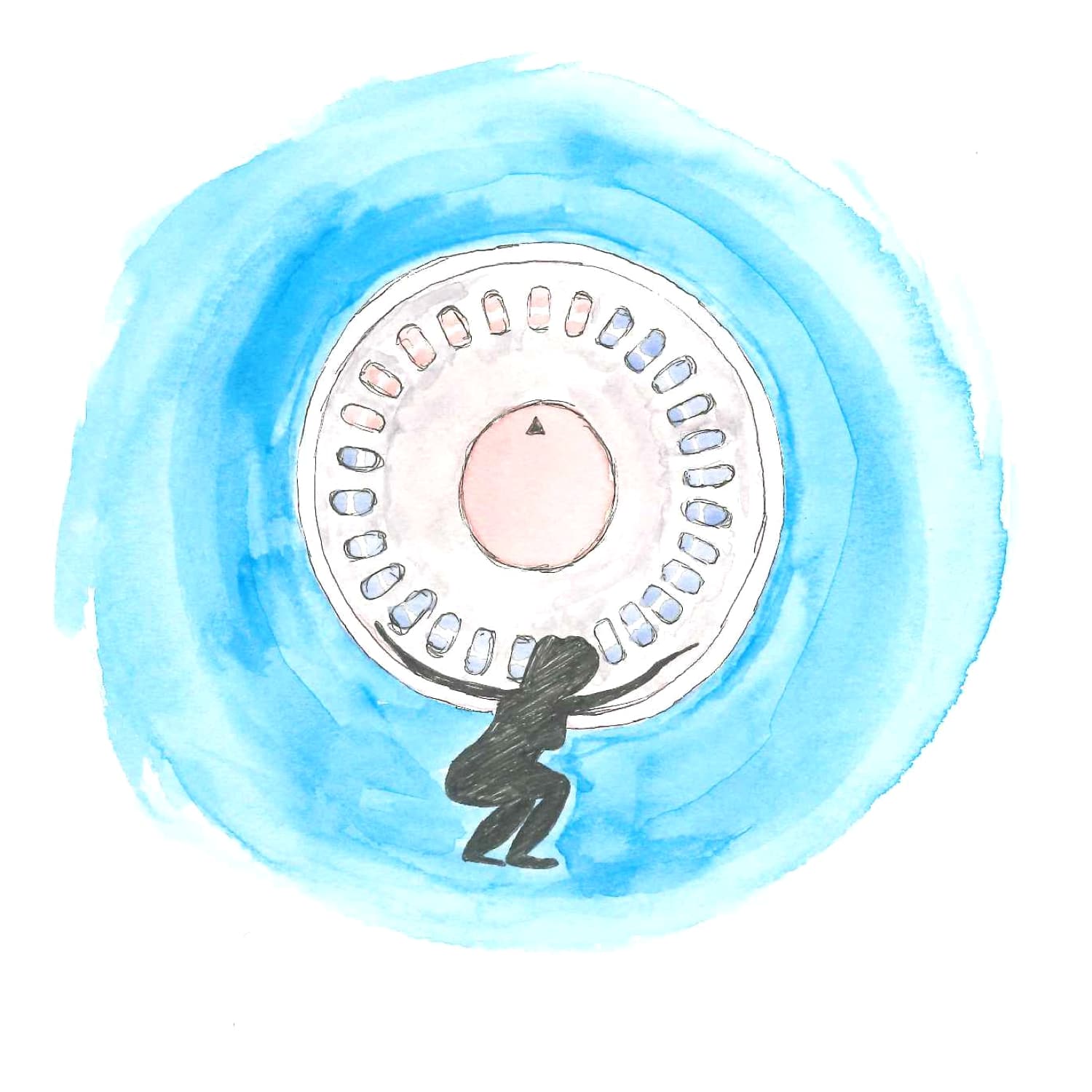The Trump administration recently enacted — with no period for public comment and only a few days warning — a measure that will allow employers to selectively choose whether or not to cover birth control for their employees. This is part of a broader effort to allow employers a loophole to nondiscrimination clauses on the basis of religious or moral objection. The administration claims that making birth control more difficult and expensive to access will prevent “risky sexual behavior.”
And yet research shows that mandating that hormonal birth control remain affordable encourages responsible behavior around sex. In fact, the riskiest sexual behavior you can engage in is the unprotected kind. This move is blatantly discriminatory towards women’s reproductive freedoms and also women’s general health.
The conversation about women’s accessibility to reproductive health services, especially when one factors in abortion rights, is seemingly never-ending. It’s almost as if evidence-based research doesn’t matter to the people who enact these kinds of regulations. Perhaps because these regulations aren’t about protecting women’s health or creating a more responsible society. Perhaps they are instead about preserving a narrow-minded and unrealistic vision of what womanhood and sexuality should look like.
I’ve taken complete responsibility for my birth control since I was in high school. I originally began taking hormonal birth control pills (colloquially, “the Pill”) to manage period pain that used to bring tears to my eyes during the school day. The first time I asked my mom about using birth control as a potential solution to the cramping I was experiencing, she told me it wasn’t appropriate for me — in middle school at the time — to use the medication at such a young age.
When my mom deemed me old enough to use it at sixteen, I was told to hide the pills from my dad. Birth control was a prescription I felt embarrassed to pick up at the pharmacy. I felt a need to explain constantly that I wasn’t using it to have sex and to hide the fact I was taking it from anyone who wouldn’t believe that. Despite its many uses for conditions outside of preventing pregnancy, birth control remains stigmatized.
But I’m lucky. I can access birth control. I still have (fingers crossed) zero copay through fantastic health insurance and a great doctor who noticed the pain I was in due to my periods and insisted on prescribing birth control as a possible solution, even though I was nervous about taking it. Not everyone has these advantages.
I have had a daily alarm on my phone to remind me to take the pill, under a code word, since high school. I have to keep an eye on how many packs of pills I have left and how quickly they will run out. I can only get a refill every three months, and I can only get that refill on the very last day of my pill pack. So, on the day I run out, I have to go to the pharmacy that day, no matter what else I have to do or where I am.
I’ve had a partner who distrusted my use of birth control; who actively questioned and undermined my ability to use it correctly, despite him having no way to know the intricacies of its acquisition and usage the way I have to.
These intricacies are not something anyone could have taught me. I learned through trial and error. If you lose your pill pack for any reason, ask your doctor politely to change your prescription dosage just slightly. This allows them to prescribe you a brand new pack of pills at any pharmacy, and you’ll circumvent the restrictions on refills. If you accidentally find yourself out of pill packs when the pharmacy is already closed, don’t panic: pick the prescription up first thing in the morning. Keep all your pill packs in the same place and write down or set a calendar alert for the day you’ll need to visit the pharmacy to refill. If your insurance covers it, consider an implant or an IUD.
Men carry the privilege of being able to have sex free from the responsibilities of childbirth and childrearing. This is likely why a male-dominated administration felt that the responsibility for birth control should remain on women, no matter the cost. The burden of taking responsibility for birth control is already entirely on women. And it’s already really, really hard. Stop making it harder.
The New York Times reported that the National Women’s Law Center, the Center for Reproductive Rights, and the American Civil Liberties Union plan to challenge this ruling. I checked, and all three organizations have a 93 percent rating or higher on Charity Navigator, so if you’re angry and want to get involved with your time and/or money, these three are good places to start.
Laura Scott is a senior English major. She can be reached at lscott@oxy.edu.
![]()































